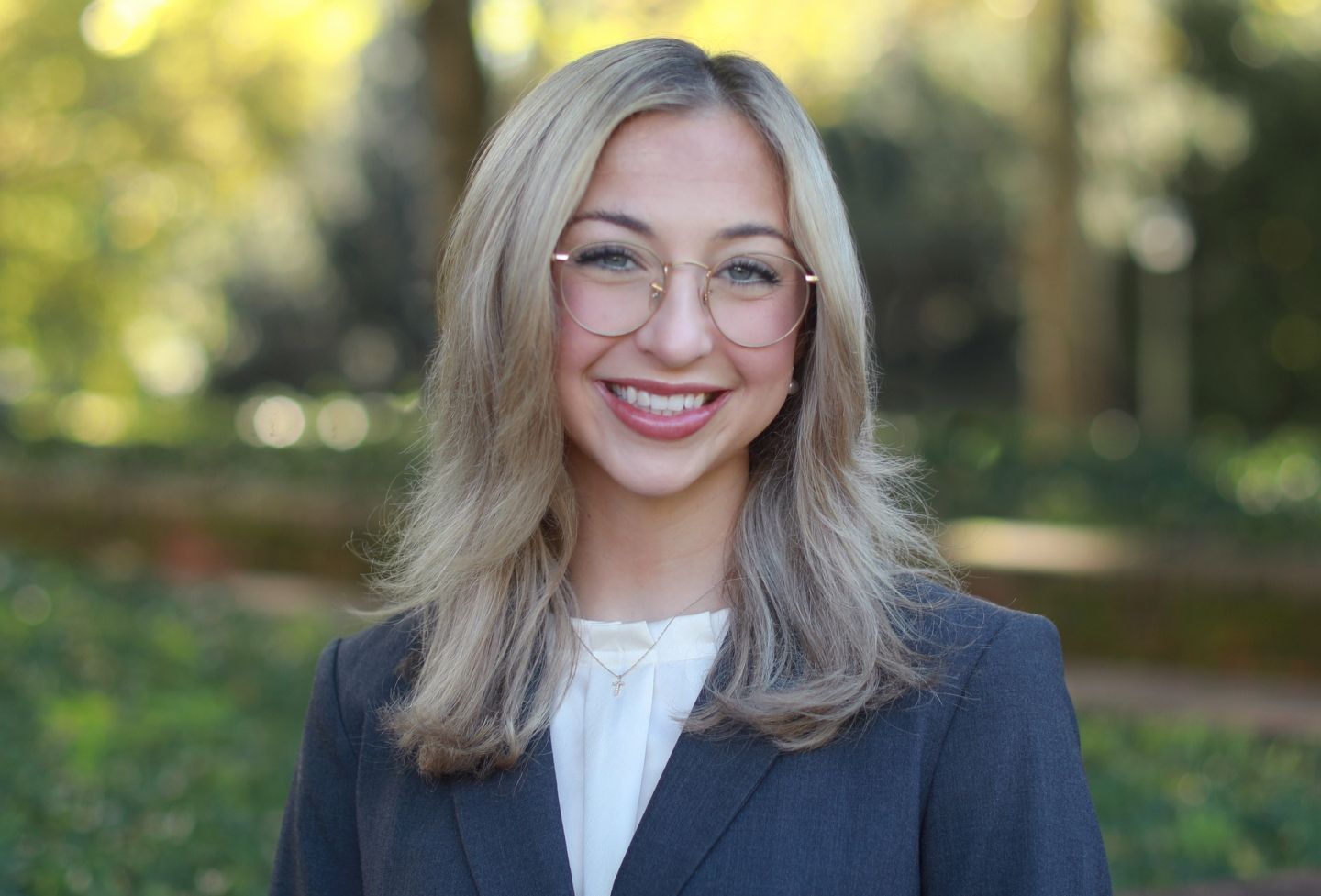Biruktawit “Birdy” Assefa, a second-year student at the University of Virginia School of Law, has been named the new editor-in-chief of the Virginia Law Review. Assefa took on the role Jan. 31 at the student-run publication, now in its 110th year of operation.
In a Q&A, Assefa discusses her law school interests, goals for the Law Review and advice for first-year students. Tryouts for all student journals start Feb. 24, with personal statements due Feb. 22.
Hometown:
Addis Ababa, Ethiopia, and Arlington, Virginia
Prior education:
I got my undergraduate degree and my Master of Public Health from Yale University.
Prior work experience:
I worked as a researcher at the SEICHE Center for Health and Justice, a collaboration between the Yale School of Medicine and the Yale Law School that provides primary care and legal support to people recently released from incarceration.
Future career plans:
This upcoming summer I will be an associate at Williams & Connolly in D.C. In the long term, I hope to end up in a career where I have room to be inventive and to think outside of the box. I want to help push the capacity of the law in creative and helpful ways.
Favorite law class or subject:
I love legal history, civil procedure and constitutional law, so it’s hard to choose one class. If I had to pick, I really loved Civil War and the Constitution, and History of American Federalism, both taught by Professor Cynthia Nicoletti.
Other activities at the Law School:
I’m education chair for the Black Law Students Association, which has been one of the most formative experiences of my time at UVA Law. In addition, I’m a research assistant for Dean Risa Goluboff and I served as 1L representative for Virginia Law Women.
Goals for the Virginia Law Review:
My main goal for the Virginia Law Review during my tenure is promoting accessibility and timeliness. With regards to scholarship, this means publishing pieces that draw in readers beyond niche academic audiences and that are responsive to the current times we live in. I also plan to build on the efforts of previous managing boards to make VLR and legal scholarship more accessible to marginalized communities. In general, I’m a firm believer that legal scholarship is at its best when it considers all sources of expertise, from professors and practitioners to those who are not traditionally trained in the legal field and yet have intimate knowledge of the impacts of the law. This belief is the guiding principle behind my vision for the Law Review.
Advice for 1Ls:
Remember that there is more than one valid way to define success and intelligence. You can be a great exam-taker, a great scholar, a great organizer and coordinator, etc. … Every one of these (and more) are very valid ways to succeed in law school and beyond. Despite common misconceptions, struggling in one area does not define you or your capacity as a lawyer.
On a related note, while it’s important to improve your weaknesses, I also believe it’s important to lean into your strengths. Do law school in a way that makes sense to you and in a way that leverages your strengths. If you don’t like the timed nature of exams, do an independent research and produce a piece of scholarship on a timeline that works for you. If you don’t like substantial research papers, take advantage of clinics and other experiential learning opportunities. Different people work differently, so construct your time in law school in a manner that works for how you think and what you enjoy doing. Use law school not just as means to an end but also as an intellectual pursuit in and of itself.
When you are experiencing friction between how you function and what is expected of you, I encourage you to ask yourself not just whether you should change but also whether your environment should change. For many of us, especially those of us who come from marginalized backgrounds, we feel pressure to change ourselves to fit our environment, but oftentimes, it’s our environment that should change to make room for us and for how we show up in the world. As a Black queer woman, I am a product of the guidance of women of color, particularly Black women, which is all to say: Show up as yourself and build environments that nurture your honest self instead of the other way around.
Don’t be afraid to do the things that scare you. If you’re waiting for the fear to go away before taking on challenging, exciting endeavors, then you will have a hard time stretching yourself and stepping outside of your comfort zone. Instead, recognize the fear but also believe in your capacity to learn and to pivot. Go for the things that scare you even while the fear is there. In my experience, that’s when you learn the most about yourself and when you find the most fulfillment.
Rounding out the managing board are:
Managing Editor
David J. Anders
Membership & Inclusion Editor
Shontae Salmon
Articles Development Editors
Haley S. Gorman
Hunter R. Heck
Articles Editors
David C. Ahnen
Hannah Genender
Reece G. Henry
Audrey C. Payne
Jacob A. Rinear
Charles J. Rossino
Zachary L. Taylor
Mary G. Triplett
Assistant Managing Editor
Jamie B. Miller
Notes Development Editor
Harrison I. Gordon
Notes Editors
Shannon M. Bader
Madeline B. Killen
Emma E. McLaughlin
Liam O. Zeya
Online Development Editor
Dennis J. Ting
Online Editors
Michael A. Martinez
Briana M. Woody
Heream Yang
Lead Executive Editor
Casey P. Schmidt
Executive Editors
Ben Buell
Sydney R. Eisenberg
Ella G. Jenak
Honora J. Logsdon
Lauren N. McNerney
Hana Verwilt
Founded in 1819, the University of Virginia School of Law is the second-oldest continuously operating law school in the nation. Consistently ranked among the top law schools, Virginia is a world-renowned training ground for distinguished lawyers and public servants, instilling in them a commitment to leadership, integrity and community service.


